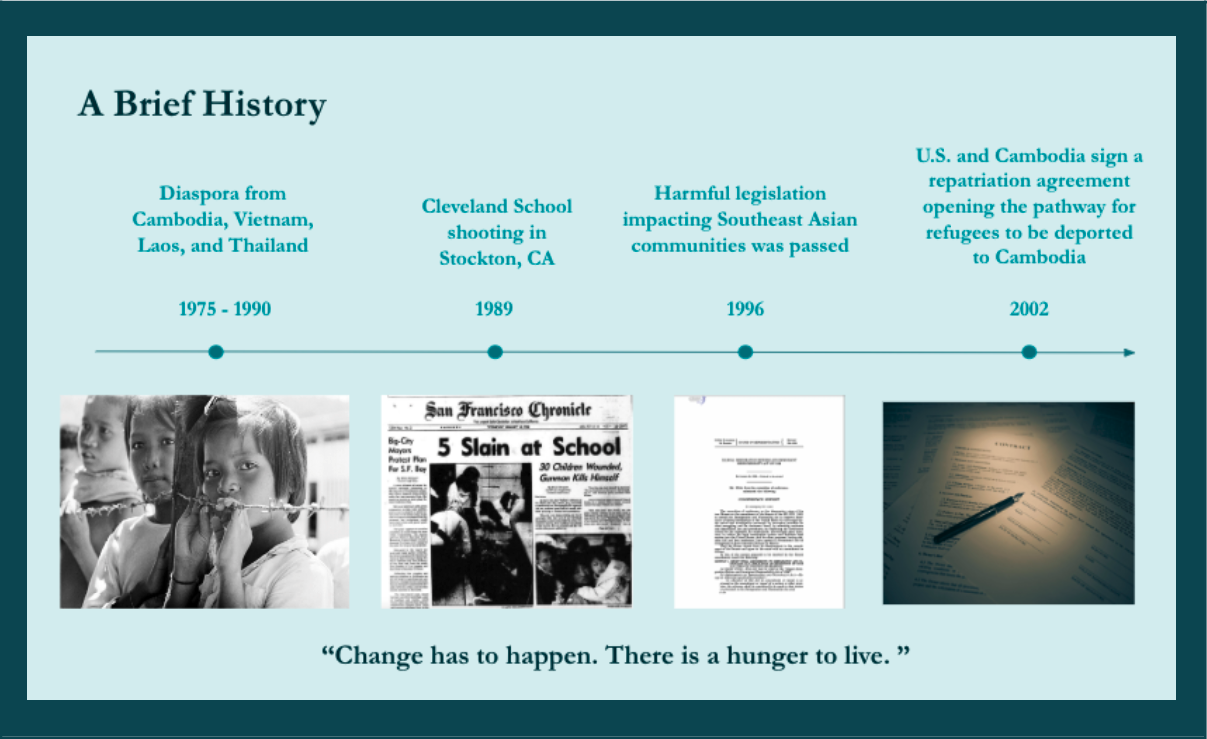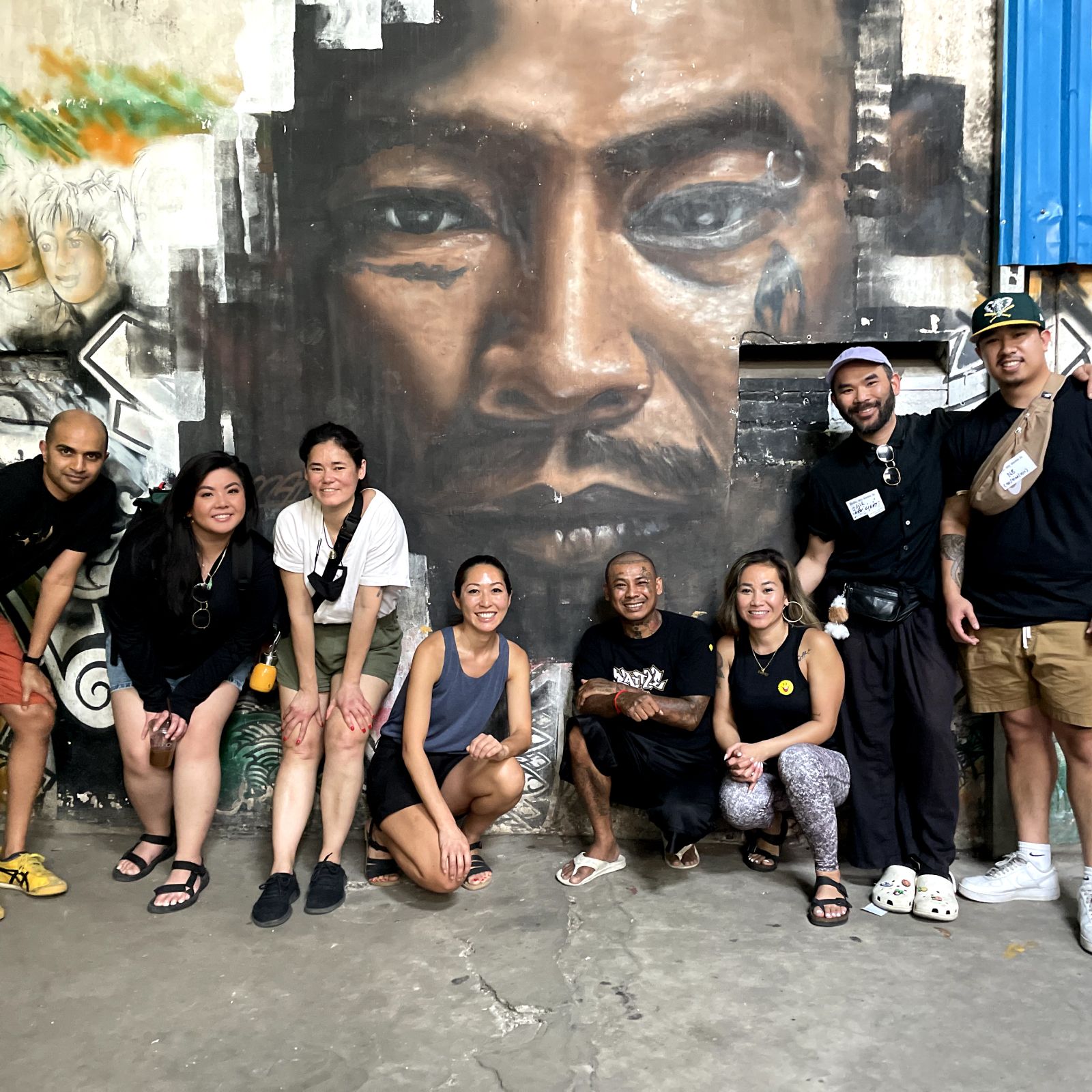The Kites to Southeast Asia Coalition (comprised of APSC, CERI, MN8, NBF, and New Light Wellness) put together this resource document for readers to learn more about Southeast Asian deportations and ways to take action.
Introduction
Thank you for your interest in learning more about the history of Southeast Asian refugees and the U.S. prison-to-deportation pipeline. Below, you’ll find a list of resources about Southeast Asian deportations. This is not exhaustive, and we will continue to refresh this content as we come across new information.

Articles & Books
- Cambodian Deportees Return to a ‘Home’ They’ve Never Known (The Atlantic)
- ICE deported 25 Cambodian immigrants, most of whom arrived in the U.S. as refugees (NBC News)
- The Obama Record on Deportations: Deporter in Chief or Not? (Migration Policy Institute)
- Southeast Asian Refugees Are the Latest Victims of Trump’s Deportation Crackdown (The Nation)
- U.S. Deports The Latest Group Of Cambodian Immigrants (NPR)
- Decades After Resettling in America, Southeast Asians Continue to Fight for Basic Rights (Prism Report)
- Reps. Chu, Jayapal, Lofgren, & Pressley Introduce Southeast Asian Deportation Relief Act to Keep Refugee Families Together (Representative Judy Chu)
- He grew up in California. Now, he’s forced to live in his birth country — a place he’s never known (SF Chronicle)
- California prisons illegally send prisoners’ info to ICE, including those who merely look ‘foreign,’ lawsuit says (SF Chronicle)
- The woman confronting the US prison-to-deportation pipeline (Survived and Punished)
- Student Danny Thongsy: We can look within ourselves to find strength and persevere (UC Berkeley News)
- From the Land of Shadows: War, Revolution, and the Making of the Cambodian Diaspora (Professor Khatharya Um)
Reports and Briefs
from The Southeast Asia Resource Action Center (SEARAC)
- The Devastating Impact of Deportation on Southeast Asian Americans – A one-pager exploring the status of at least 14,000 people who face potential deportation.
- SEARAC Media Messaging Guide on Southeast Asian American Criminal Deportation – Basic facts, top-line messages, and tips to address media inquiries.
- How Family-Based Immigration Benefits Southeast Asian Americans—Standing Up for Families and Our Rights – A memo that discusses the current backlog for immigration visas and the ramifications of ending family-based sponsorship.
- Southeast Asian Americans and the School-to-Prison-to-Deportation Pipeline – Poverty, mental health, criminalization, and other statistics surrounding the largest refugee community in US history.
- Southeast Asian Americans and Deportation Policy – A primer on laws responsible for the mandatory detention and deportation of Southeast Asian refugees and SEARAC’s recommendations on legislative fixes.
- Asian Americans & Pacific Islanders Behind Bars – This 2015 report exposes the school-to-prison-to-deportation pipeline and offers recommendations for addressing mass incarceration and deportation.
Videos
- “Deportation would mean losing my loved ones” Choy Pangthong
- Nowhere But Here (Documentary)
- Taking Root: Southeast Asian Stories of Resettlement in Philadelphia
- Deported: Forced Family Separation (NBC Asian America)
Campaigns
- APSC4: Borey “Peejay” Ai, Nghiep “Ke” Lam, Chanthon Bun, and Maria Legarda make up the APSC 4 and are at risk of deportation. Tell Governor Newsom to pardon them NOW so they can remain home with their families and community. The APSC 4 are childhood survivors of violence and trauma. As youth, they were subjected to bullying, poverty, war, and domestic violence. As a result, they were funneled into the criminal legal system. During their incarceration, they became positive leaders inside, completed several self-help programs, and even got educational certificates. They all earned their release from the California Department of Correction and Rehabilitation (CDCR). After the Board of Parole Hearings and the Governor affirmed that all members were suitable for release, CDCR contacted Immigration and Custom Enforcement (ICE) to attempt to deport them instead of allowing them to come home to their communities.
- HomeAct (AB1306): AB 1306, the Harmonizing Our Measures for Equality (HOME) Act, authored by Assemblymember Wendy Carrillo, would ensure that Californians are not excluded based on where they were born from benefiting from criminal justice reforms that were passed by this legislature. The HOME Act would prevent the California Department of Corrections and Rehabilitation (CDCR) from transferring to federal immigration authorities individuals who have earned release through these reforms.
Organizations & Other Resources
- Tiny Toones (Phnom Penh, Cambodia): has made a huge difference in the lives of local underserved Khmer youth, but the organization is having difficulty securing funding. If you’re interested in supporting, you can donate at http://www.tinytoones.org/donate/ or contact them here.
- SEAC Village (North Carolina, US): SEAC Village believes in collective liberation where all people are safe and cared for. We are a grassroots organization created for and by impacted communities in the South. We are creating a world where we center the needs of Southeast Asian, Black, Indigenous, and LGBTQIA+ people and work to liberate one another through the lenses of abolition, decolonization, collectivism, no borders, and the right to reclaim our lands, nor be stripped from our homelands. http://www.seacvillage.org/
- Asian Law Caucus: Resources for Southeast Asian Refugees Facing Deportation
- SEARAC: Immigration
- SEARR Campaign: Southeast Asian Relief & Responsibility (SEARR) Campaign
- Ice Out of California
- Dignity Not Detention
2023 Kites to Southeast Asia Delegation
- Asian Prisoner Support Committee (APSC)
www.asianprisonersupport.com
Contact: Nate Tan, [email protected] - CERI
www.cerieastbay.org
Contact: Kanley Souet-Pich, [email protected] - MN8
www.minnesota8.org
Contact: Montha Chum, [email protected] - New Breath Foundation
www.new-breath.org
Contact: Stephanie Gee, [email protected] - New Light Wellness
www.newlightwellness.org
Contact: Elijah Chhum, [email protected]
